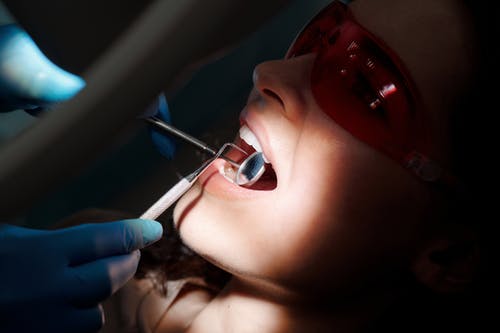Oral surgery involves any procedure performed in or around your mouth and jaw, generally by a dental specialist trained to perform particular kinds of oral surgeries. From correcting jaw structure issues to extracting impacted teeth, specific circumstances often warrant oral surgery. Let’s delve further into common oral surgical procedures you may come across.
What Is an Oral Surgeon?
An oral surgeon is also referred to as an oral and maxillofacial surgeon. They are dental surgeon experts treating many diseases, injuries, and defects in the head, neck, face, jaws, and the hard and soft tissues of the oral and maxillofacial region.
Common Oral Surgical Procedures
Here are some of the most common oral surgical procedures:
1. Tooth Extraction
Tooth extraction is a fundamental oral surgical procedure. Dentists and oral surgeons perform extractions for various reasons, including tooth decay, advanced gum disease, severe trauma, or overcrowding. Removing a problematic tooth is essential to prevent further oral health issues.
2. Wisdom Teeth Removal (Third Molar Extraction)
Wisdom teeth are the last molars to emerge in the back of the mouth, usually in late adolescence or early adulthood. Many experience issues with wisdom teeth, such as impaction (they don’t fully erupt), crowding, infection, or pain. Oral surgeons commonly perform wisdom teeth removal to address these concerns.
3. Dental Implant Placement
Dental implants are a revolutionary solution for replacing missing teeth. This surgical procedure involves inserting a titanium implant into the jawbone, where it fuses with the bone over time. After healing, a dental crown, bridge, or denture is attached to the implant, providing a stable and natural-looking tooth replacement.
4. Orthognathic Surgery (Jaw Surgery)
Orthognathic surgery is a complex procedure used to correct severe jaw misalignments (malocclusions) that can affect a person’s bite, speech, and facial aesthetics. The surgery may involve repositioning the upper jaw (maxilla), lower jaw (mandible), or both to improve function and appearance.
5. TMJ Surgery
Temporomandibular joint (TMJ) disorders can cause chronic jaw pain, headaches, and difficulty with mouth movement. When conservative treatments like medications, physical therapy, or splints are ineffective, oral surgeons may perform TMJ surgery to address the issue. This can include procedures like arthroscopy or joint repositioning.
6. Oral Pathology Procedures
Oral surgeons are crucial in diagnosing and treating various oral diseases, tumors, cysts, and lesions. Biopsies and surgical excisions are performed to remove abnormal tissue and prevent the spread of disease. Early detection and treatment are vital for the best outcomes.
7. Pre-Prosthetic Surgery
Oral surgeons may perform pre-prosthetic surgery before fitting patients with dental prosthetics like dentures or dental implants. This can involve reshaping bone or soft tissue to ensure the prosthetic device fits properly and functions effectively.
8. Bone Grafting
Bone grafting is a surgical procedure used to augment or repair the jawbone. It’s often necessary to provide adequate bone support for dental implants or to address bone loss due to trauma, infection, or bone diseases. Bone graft material can come from the patient’s body or be synthetic.
9. Sinus Lift Surgery
Oral surgeons perform sinus lift procedures when the sinuses encroach on the upper jawbone, making it difficult to place dental implants. These involve lifting the sinus membrane and adding bone graft material to create space for implant placement in the upper jaw.
10. Cleft Lip and Palate Repair
Oral surgeons specializing in pediatric maxillofacial surgery perform corrective procedures for infants and children born with cleft lip and palate conditions. These surgeries aim to improve speech, facial aesthetics, and function and are typically performed in multiple stages as the child grows.
11. Facial Trauma Repair
Oral and maxillofacial surgeons are often called upon to treat facial injuries resulting from accidents or trauma. They may perform procedures to realign and stabilize fractured facial bones, restoring function and appearance.
12. Sleep Apnea Surgery
In severe obstructive sleep apnea cases that do not respond to non-surgical treatments, oral surgeons may perform surgical interventions to improve airway function. This can include procedures like genioglossus advancement or maxillomandibular advancement, which reposition the tongue or jaw to alleviate airway obstruction during sleep.
Living in Seymour and seeking an oral surgeon? It’s important to pick an expert oral surgeon for Seymour residents with skills and experience. They are trained to handle complex surgical procedures and ensure your comfort and safety throughout the process.
Oral Surgical Procedures Related to Dentures
The success of your dentures, particularly implant-supported dentures, heavily relies on the health of your gums and jaws. For further information about dentures, simply click here. Achieving the best fit for denture wearers often involves oral surgical procedures.
Choosing an Oral Surgeon
Choosing the right oral surgeon is important as it can significantly impact your oral health and overall well-being. Here are some steps and considerations to help you choose the right oral surgeon:
- Seek Referrals: Start by asking your dentist for recommendations. Dentists often work closely with oral surgeons and can provide valuable insights based on their professional experience. You can also ask friends, family members, or colleagues for referrals if they’ve had positive experiences with oral surgeons.
- Check Qualifications and Credentials: Ensure the oral surgeon you’re considering is board-certified in oral and maxillofacial surgery. Certification indicates that the surgeon has completed the necessary education, training, and examinations to practice safely and effectively. You can verify the surgeon’s credentials through your state’s dental board.
- Experience and Expertise: Inquire about the surgeon’s experience and areas of expertise. Some oral surgeons specialize in specific procedures or conditions, such as dental implant surgery, jaw surgery, or pediatric oral surgery. Choose a surgeon whose expertise aligns with your needs.
- Patient Reviews and Testimonials: Look for online reviews and testimonials from patients who have received treatment from the oral surgeon. Reviews can provide valuable insights into the surgeon’s skill, bedside manner, and patient satisfaction. Be sure to consider multiple sources for a well-rounded view.
- Consultations: Schedule consultations with prospective oral surgeons. This lets you meet the surgeon, discuss your needs and concerns, and ask questions. Pay attention to how the surgeon communicates and whether they take the time to address your queries.
- Facility and Technology: Visit the surgeon’s practice or surgical facility to assess its cleanliness, organization, and the quality of equipment and technology used. Modern, well-equipped facilities often lead to safer and more efficient surgical procedures.
- Insurance and Payment Options: Check whether the oral surgeon accepts your dental insurance plan, if applicable. Also, discuss payment options, including any available financing plans or payment arrangements.
- Referrals and Collaborations: Ask the surgeon about their collaboration with other healthcare providers, such as dentists, orthodontists, and physicians. A well-established network of professionals can enhance the quality of care and ensure a comprehensive treatment approach.
- Emergency Availability: Inquire about the surgeon’s availability for emergencies or complications that may arise after surgery. Knowing that you can reach your surgeon in case of unexpected issues can provide peace of mind.
- Personal Comfort: Trust your instincts when choosing an oral surgeon. Consider whether you feel comfortable and confident in their care. A good rapport with your surgeon can make the treatment process more manageable and less stressful.
- Cost and Insurance: Understand the cost of the procedure and the surgeon’s billing practices. Verify how much will be covered by your insurance and what out-of-pocket expenses you can expect. Ensure that you are comfortable with the financial aspects of the treatment.
- Second Opinions: Don’t hesitate to seek a second opinion if you have doubts or concerns about the recommended treatment plan or the surgeon’s approach. A second opinion can provide clarity and help you make an informed decision.
Conclusion
The realm of oral surgical procedures is extensive, covering everything from tooth extractions to intricate jaw surgeries. Equipped with specialized training, oral surgeons offer expertise in treating complex facial injuries, conducting tissue biopsies, and carrying out advanced denture procedures. It’s crucial to choose the right professional for your needs and make an informed decision for your oral health.





